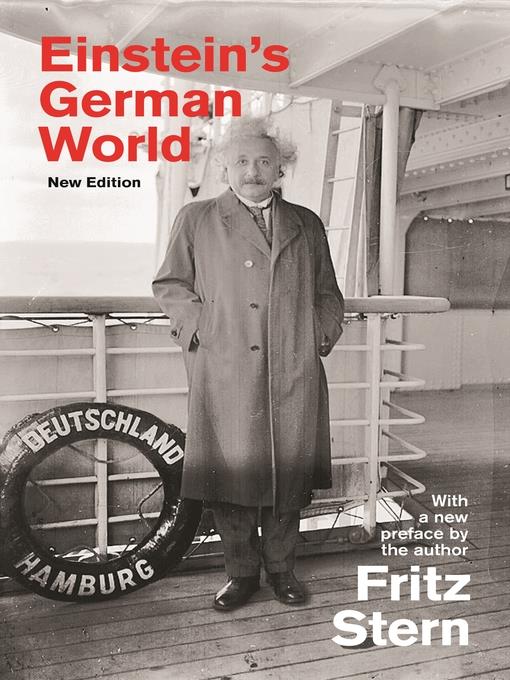
Einstein's German World
کتاب های مرتبط
- اطلاعات
- نقد و بررسی
- دیدگاه کاربران
نقد و بررسی

June 28, 1999
Distinguished historian Stern (Gold and Iron, Dreams and Delusions, etc.) presents a rich collection of essays--some scholarly, others more personal--written during the past decade. The book's first part centers around the lives of four visionary scientists (Paul Ehrlich, Max Planck, Fritz Haber and Albert Einstein), allowing Stern to draw attention to what he calls "Germany's second Geniezeit," or Age of Genius, an era filled with great promise and yet punctuated by war and violence. His subjects, internationally acclaimed figures in modern science, were also committed German patriots, all of whom (except Einstein) were outspoken supporters of the German war effort in 1914. The extended chapter on Haber and Einstein meticulously documents the careers of these two highly assimilated German Jews who, despite numerous obstacles, managed to become leading public intellectuals of their time. In the second half of the book, Stern reevaluates major debates concerning the First World War, German unification, the representation of the Holocaust and contemporary German-Polish relations. Without ever pointing an accusatory finger, Stern's approach helps readers to grasp how the extraordinary potential for "what could have been "Germany's century" ended so disastrously. Stern launches a corrective to the notion of German peculiarity, insisting instead on the greater universal import of interpreting the German past. As he persuasively argues, "No country, no society, is shielded from the evils that the passivity of decent citizens can bring about. That is a German lesson of the twentieth century--for all of us."

July 1, 1999
Columbia historian Stern (Gold and Iron: Bismarck, Bleichr der and the Building of the German Empire) presents a collection of compelling essays written over the last decade. The loose theme of the first section is Jewish men who succeeded in pre-Nazi Germany; in the second section, Stern delves into themes of current German historiography. Collections of essays can be uneven in quality, but the only weakness here is an essay on Chaim Weizmann, the first president of Israel, which seems out of place. "Historians and the Great War" is a fascinating look at how personal experience in the trenches of World War I affected the later writing of historians. "The Past Distorted: The Goldhagen Controversy," in which Stern points out flaws in Daniel Goldhagen's Hitler's Willing Executioners (LJ 3/15/96), is worth the price of the book. Biographical essays on Paul Ehrlich, Max Planck, Fritz Haber, and Walther Rathenau illuminate figures who have not received much attention in English-language publications. Highly recommended for academic libraries and any public library that holds Goldhagen's book.--Randall L. Schroeder, Wartburg Coll. Lib., Waverly, IA
Copyright 1999 Library Journal, LLC Used with permission.

September 15, 1999
Stern, an eminent historian, is particularly interested in how German scientists responded to the anti-Jewish undercurrents of their society. He examines the lives of four scientists--Max Planck, Paul Ehrlich, Fritz Haber, and Albert Einstein--whom he extols as leading lights of Germany's second "Age of Genius" (the first having been the era of Goethe). The impingement of politics on each scientist animates the essays: Einstein was famously an anti-imperialist pacifist; on the other hand, chemist Haber contributed crucially to Germany's explosives and poison gas production in World War I. But, as Jews, both went into exile after 1933. To illustrate further the untenability in an embittered post^-World War I German society of even patriotic Jews, Stern recounts the tragedy of Weimar foreign minister Walter Rathenau. The general question of the depth of anti-Semitism gets a fuller airing in Stern's sharply critical appraisal of Daniel Goldhagen's "Hitler's Willing Executioners" (1996), a hit with the German public but not with historians like Stern. Seasoned ala carte essays on continuing controversies in German history. ((Reviewed September 15, 1999))(Reprinted with permission of Booklist, copyright 1999, American Library Association.)

























دیدگاه کاربران